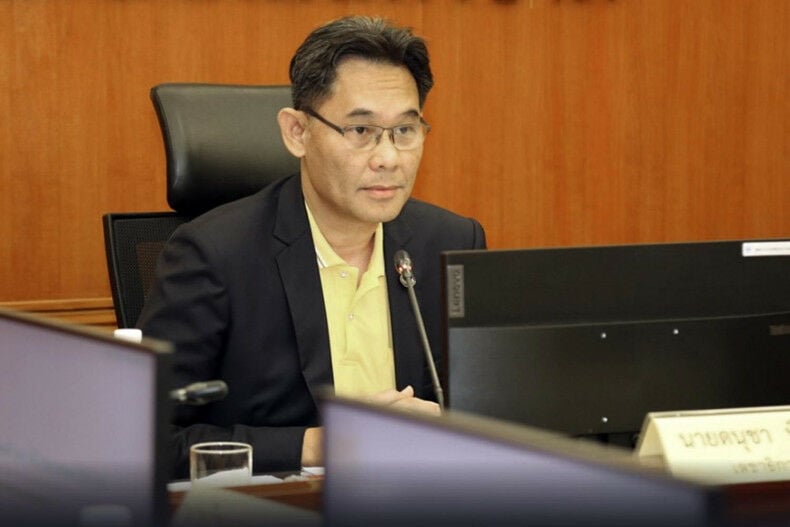NESDC proposes stricter regulations for social media influencers

The Office of the National Economic and Social Development Council (NESDC) in Thailand proposed tighter regulations for social media influencers, in an attempt to curb unethical or illegal content production.
NESDC Secretary-General, Danucha Pichayanan, suggested yesterday that the Media Standard, Ethics, and Freedom Protection Act be extended to cover online content creators.
Danucha stressed the urgency of a regulation that allows authorities to thoroughly scrutinise content destined for social media platforms, ensuring its accordance with the law. He also advocated for the redefinition of social media within the expanded law to enhance enforcement measures.
The call for regulation comes in response to the Thailand Social’s Outlook report on social media trends, which highlighted the growing influence of online content creators and influencers in promoting vices, such as online gambling.
According to a report by data analytics company, Nielsen, Thailand boasts two million influencers, making it the second-largest influencer population in Southeast Asia after Indonesia. The same report indicated that in 2022, influencers and content creators globally contributed an economic value of at least US$19 billion (approximately 68 billion baht), a figure projected to hit US$140.3 billion by 2030.
Influencers in Thailand can earn as much as 800,000 baht per social media post, depending on their reach and popularity. This lucrative prospect has intensified competition in content production and audience engagement. Consequently, some influencers have resorted to producing unethical or illegal content to garner attention and stimulate engagement, which directly translates into revenue.
Illicit content
Methods of increasing engagement span from spreading fake news to promoting online gambling. Pichayanan revealed that in the previous year, 7,394 accounts published 5,061 fake news stories. Furthermore, a study by the Centre for Gambling Studies at Chulalongkorn University found that 87.7% of the 740,000 new online gamblers were lured by online advertisements, reported Bangkok Post.
The NESDC Secretary-General also pointed out the potential social impact of other types of content. For example, content showcasing influencers flaunting their wealth has gained popularity among Thai netizens, despite contradicting social norms and values. Additionally, concerns have been raised over privacy invasion and copyright violations, particularly when influencers share their perspectives on news stories without proper citation or discretion with sensitive details.
Pichayanan recommended updating existing laws, such as the Computer Crime Act and the Consumer Protection Act, to keep pace with the rapidly evolving trends in content creation. He cited China, the United Kingdom, and Norway as examples of countries that have implemented regulations on social media content.
Latest Thailand News
Follow The Thaiger on Google News:


























